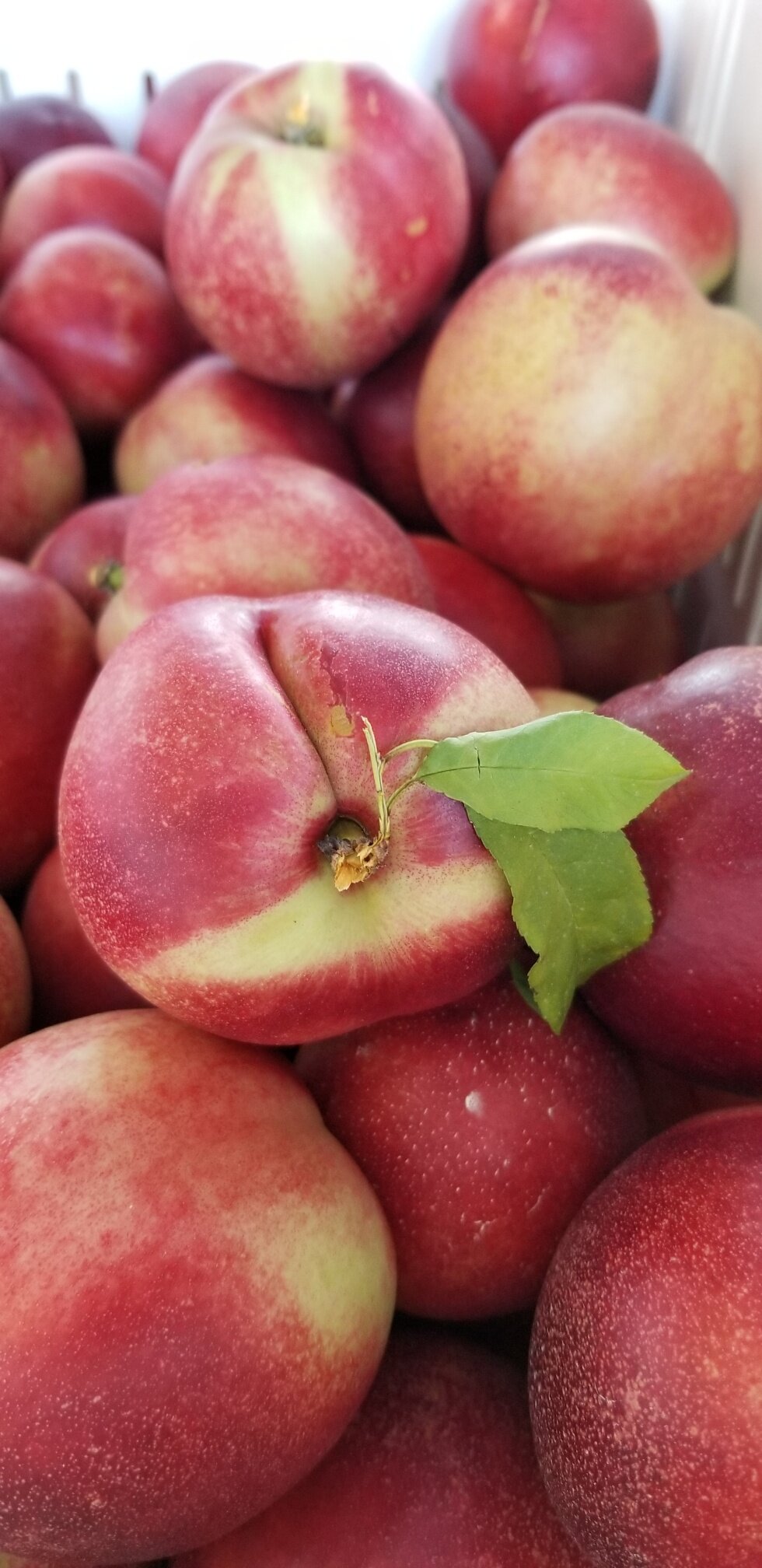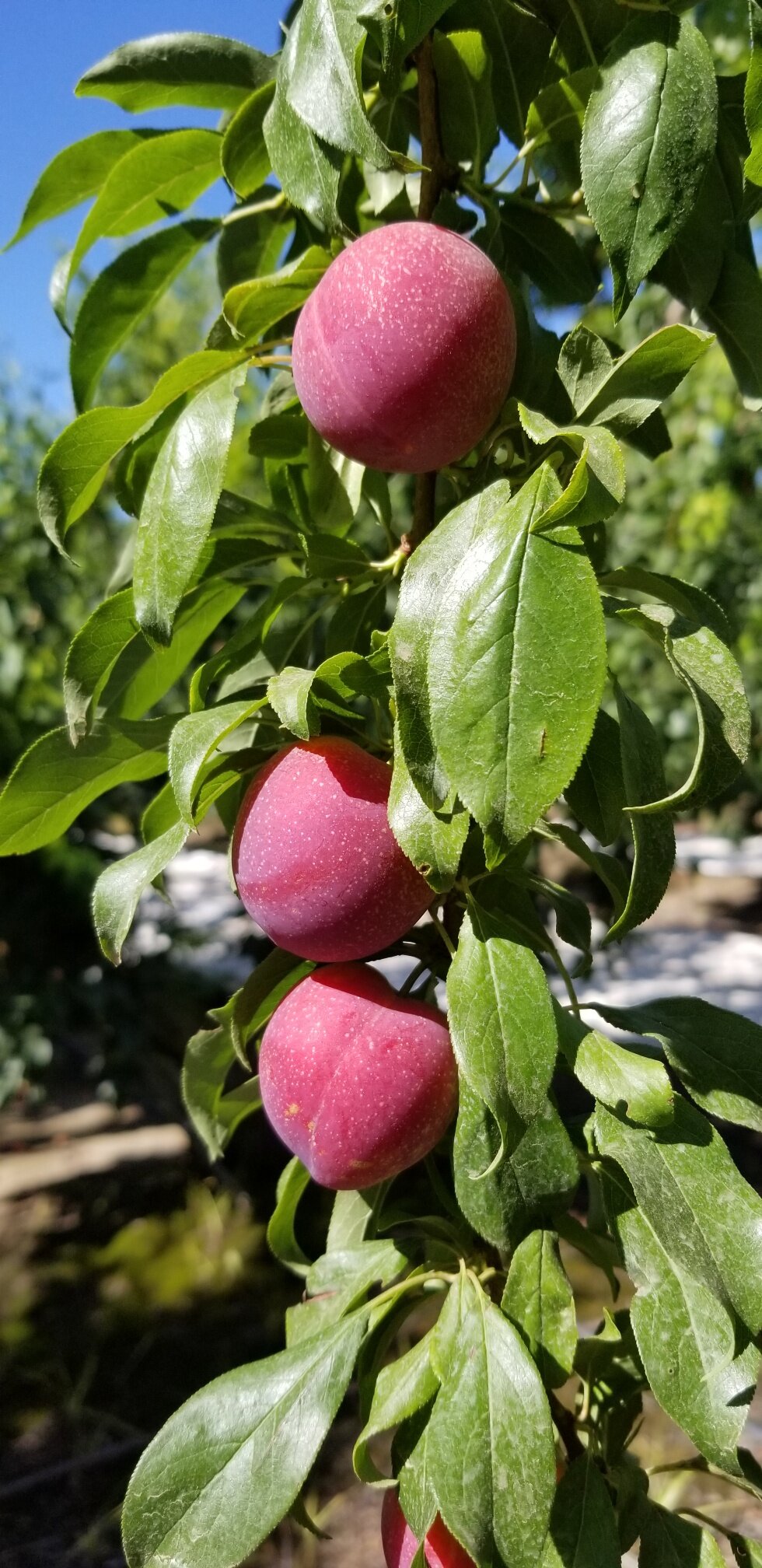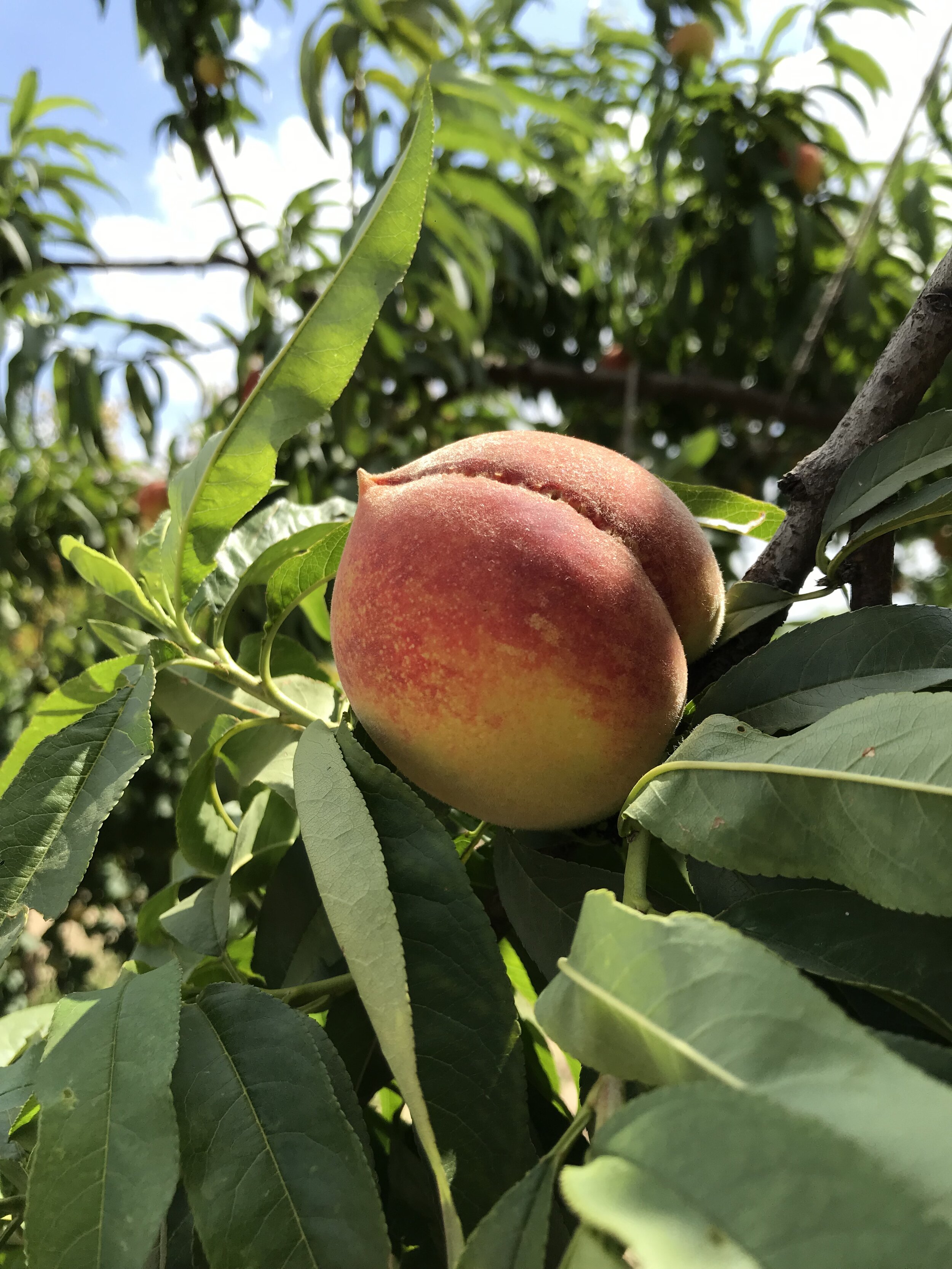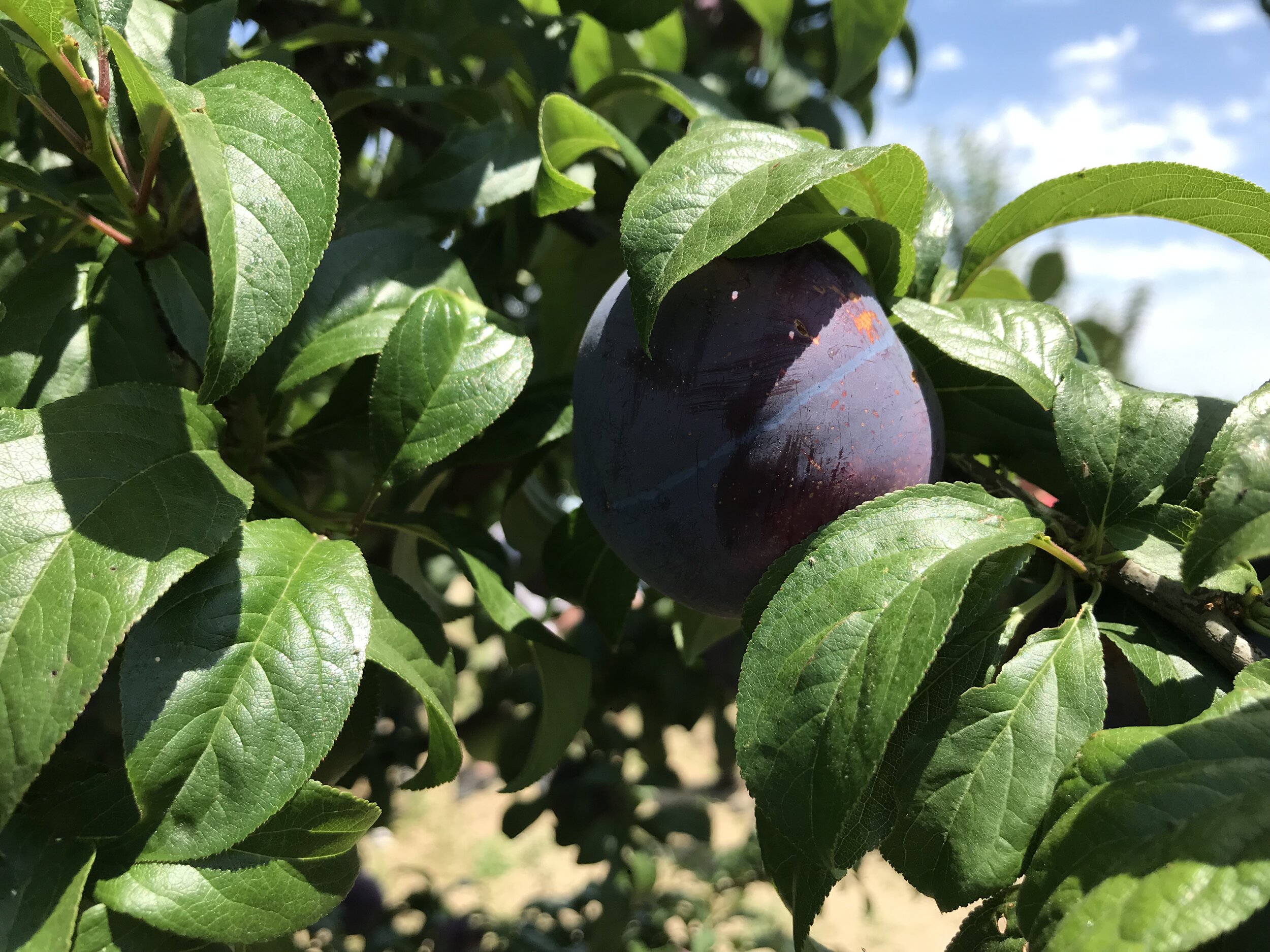Stone Fruit Season is Here and Offers Endless Variety - Thanks to Zaiger Genetics
The first stone fruit of the season has landed! This dynamic category starts with California gems and makes its way into Oregon and Washington as the season rolls on. Early peaches, nectarines, apricots and cherries will soon be joined by a dizzying array of plums and pluots.
“What I love about this category, is that it comes on in really high quality and in great volume right off the bat,” shares OGC’s stone fruit buyer Brian Keogh.
That is, assuming Mother Nature plays nice. Early apricots took a beating from windstorms and hail in California’s Patterson and Hanford areas resulting in a slow start for that crop. Look to later apricot varieties to provide the luscious aroma and flavor coming on in volume soon!
However, yellow peaches and nectarines are already eating phenomenally and will only continue to grow in size and volume. White peaches are just around the corner, as well as more white nectarines.
Red cherries are also available and the quality is great. Keep an eye out for hotly anticipated Rainier cherries from California, debuting in a couple of weeks!
Plums, with all of their dramatic skin and flesh color combinations, are landing soon, along with an incredible number of varieties of pluots. These two crops will keep shoppers eating well through the season and into early fall. More shelf-stable than peaches and nectarines, plums and pluots are a great option for shoppers still making fewer trips to the grocery store and stocking up when they go!
Flavorosa pluots, with their deep red flesh, lightly tart skin and fantastic flavor will be one of the first to arrive and are the perfect pluot to introduce to eaters still unfamiliar with this hybrid fruit!
“This variety always hits a home run,” Brian enthusiastically says of Flavorosas, “and we can thank Zaiger Genetics for developing them!”
In 1954, Floyd Zaiger and his wife Betty bought an azalea nursery west of Modesto California. They started experimenting with heat-resistant rhododendrons as a way to make a little extra money to support their growing family. Neither could have anticipated that those early days of plant breeding would eventually lead to their family’s name becoming recognized by stone fruit growers and enthusiasts worldwide.
Methodical and analog to the core, Floyd perfected his hand-pollinating technique and began exploring a dizzying number of combinations of stone fruit genes with a focus on developing varieties with exceptional flavor and adaptiveness to different climates across the globe.
From these trials, Floyd produced what is considered to be his most impactful contribution to the stone fruit category, an interspecies cross of a plum and apricot- the pluot.
The process of breeding and trialing new varieties is long; at least ten years, if not more, and longer still to start turning a profit. Over the course of Floyd’s nearly 70-year-long career, he not only pioneered methods for testing and trialing new varieties, but also shared his wisdom and expertise with his children along the way.
Leith Zaiger, Floyd and Betty’s daughter, and their two sons Gary and Grant now run Zaiger Genetics. Floyd passed in June of 2020, and Betty a few years before that.
Of the current challenges that Zaiger Genetics is working to address, Leith identifies climate change and its impact on growers as their primary obstacle to address when developing new varieties.
“If it isn’t farmer-friendly, then it isn’t a good product,” Leith shares. “We’re always breeding for flavor, but they also need to yield a good crop with minimal manipulation.”
A life-long resident of California, Leith is intimately familiar with the difficulties farmers in the state and other drought-affected regions experience. Its impact on the stone fruit industry has been significant and has turned their efforts toward identifying drought-tolerant rootstock to grow fruit with less water.
Though Leith is optimistic that it’s possible, she does predict that as environmental issues facing growers continue to mount, the challenge of educating consumers on what constitutes a “good” piece of fruit will continue to be an uphill battle. Fulfilling the needs of an industry that demands consistency year-over-year despite increasing climate pressure sounds exhausting, but Leith laughs it off casually showcasing her inherited can-do mentality about her work.
The third generation of Zaigers are ready and waiting in the wings for the time that Leith and her brothers decide to pass the torch. With timelines for developing new varieties as they are, Leith recognizes that much of what she is working on today won't reveal itself to be successful until after she’s retired.
“My dad always used to say, if we had a crystal ball, we’d know what to look for better,” shares Leith. Regardless, the trials continue.
Leith couldn’t be more humble about her family’s impact on not only stone fruit, but the incredible work they’re doing to support innovation in the almond industry. Zaiger Genetics breeds are also available to home-growers through their relationship with Dave Wilson Nursery.
“The work they continue to do is remarkably important, and for the public good,” Brian shares. “Making their varieties available to home gardeners, and not exclusively to private enterprises will ensure the heritage of these breeds continues. They are playing a vital role in creating new species that are not only flavorful but that will be able to solve some long-term issues of climate change.”
The next few months will be laden with stone fruit varieties Zaiger Genetics have helped to produce and perfect and OGC looks forward to sharing both our enthusiasm for and knowledge about this category with you.
Be sure to check out our Stone Fruit web page for grower stories, varietal education and more throughout the season!






